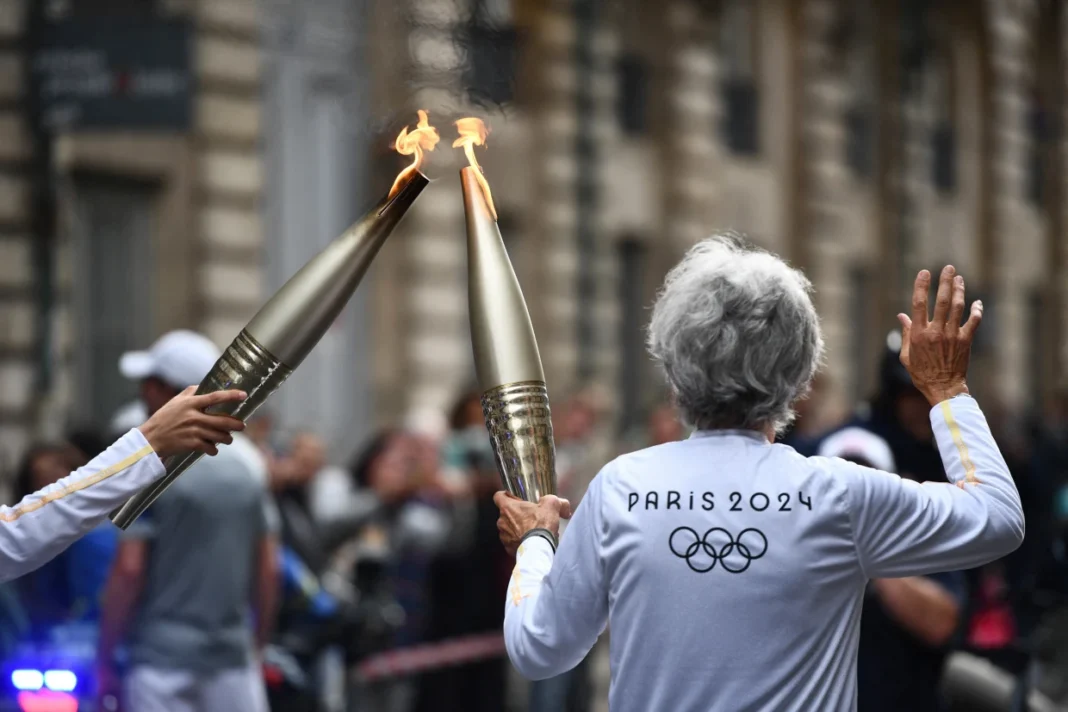In a bid to undermine the 2024 Paris Olympics, Russia has launched a covert influence campaign aimed at discrediting the Games and inciting fears of terrorism, according to a recent report by Microsoft’s threat intelligence unit.
The report sheds light on a sophisticated operation that leverages fake media, deepfake technology, and inflammatory propaganda to achieve its goals.
Disparaging the Olympics and Macron
The campaign, spearheaded by what Microsoft describes as “prolific Russian influence actors,” has been active since last summer. Its primary targets are the International Olympic Committee (IOC) and French President Emmanuel Macron.
Among the disinformation tactics employed is a bogus documentary titled “Olympics Has Fallen,” a clear nod to the 2013 action film “Olympus Has Fallen.”
This fake documentary, designed to mimic a Netflix production, features a deepfake of actor Tom Cruise, complete with AI-generated audio that mimics his voice.
The film falsely implies Cruise’s participation and includes sham five-star reviews purportedly from reputable sources like The New York Times, The Washington Post, and the BBC.
Exploiting Global Conflicts
Most recently, the Russian campaign has attempted to exploit the ongoing Israel-Hamas conflict. According to the report, Russian operatives have impersonated militants and fabricated threats against Israelis planning to attend the 2024 Games.
This disinformation includes references to the tragic events of the 1972 Munich Olympics, where members of the Israeli Olympic team were taken hostage and killed by an affiliate of the Palestine Liberation Organization.
A Broader Strategy
Microsoft’s report outlines two central objectives of the Russian operations: tarnishing the reputation of the IOC and fomenting expectations of violence during the Paris Games.
By creating a climate of fear and suspicion, these efforts aim to destabilize the event and undermine international trust and cooperation.
Digital Platforms and Deepfake Technology
The fake documentary “Olympics Has Fallen” was removed from YouTube at the request of the IOC, yet it continues to circulate on Telegram.
This underscores the persistent challenge of combating digital disinformation, especially when it can quickly migrate to less-regulated platforms.
The use of deepfake technology in the documentary highlights the evolving capabilities of influence operations and the need for heightened vigilance in verifying digital content.
Responses and Reactions
The IOC and French authorities have expressed concern over these revelations. The IOC has reiterated its commitment to ensuring the safety and integrity of the Games, while French officials have vowed to counteract any attempts to disrupt the event.
Microsoft’s threat intelligence unit continues to monitor these influence operations, providing critical insights into their tactics and objectives.
The Broader Implications
This campaign is part of a broader trend of state-sponsored disinformation aimed at undermining democratic institutions and international events.
By sowing discord and fear, such operations seek to weaken global cooperation and stability.
As digital technology becomes more advanced, the ability to produce convincing disinformation increases, posing significant challenges for governments, organizations, and individuals worldwide.
Conclusion
The Microsoft report serves as a stark reminder of the persistent and evolving nature of disinformation campaigns.
As the world prepares for the 2024 Paris Olympics, the need for vigilance, robust countermeasures, and international cooperation has never been more critical.
The integrity of global events and the safety of participants depend on the collective effort to combat these covert operations.
This article was created using automation technology and was thoroughly edited and fact-checked by one of our editorial staff members



